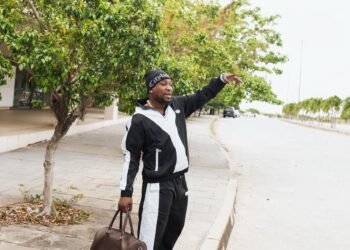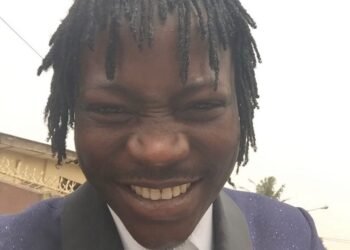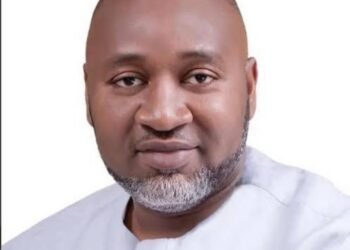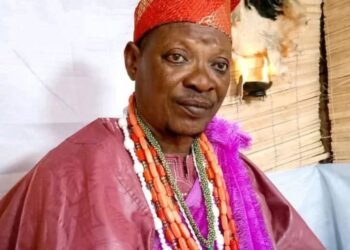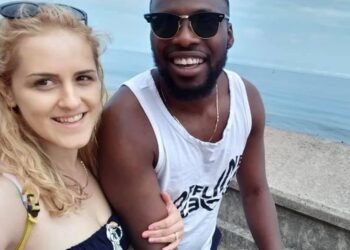Remembering Beko Ransome-Kuti: A Champion for Democracy
Bekolari “Beko” Ransome-Kuti did not choose activism; activism was his air and birthright. Born on August 2, 1940, in Abeokuta, Nigeria, he was born into a furnace of courage. His mother, Funmilayo, was a titan of anti-colonial feminism who mobilized market women and was Nigeria’s first woman driver. His father, Reverend Israel Oludotun, established the Nigerian Union of Teachers and confronted colonial authority openly.
Growing up alongside the revolutionary musician Fela and the pioneering public health advocate Olikoye, Beko absorbed a profound duty to challenge injustice. His medical degree from Manchester University became a tool not just for healing bodies, but for diagnosing and confronting a nation’s deepest political sicknesses in a lifelong fight for justice.
The Doctor Who Diagnosed Injustice
Returning to Nigeria in 1963 as a newly qualified doctor, Beko Ransome-Kuti walked straight into a medical nightmare. The hospitals that were meant to heal had been immobilized by deep-seated corruption. He saw overcrowded wards with patients who had been left to die from neglect.
The military dictators from abroad brazenly robbed the country of its wealth – resources that could be employed to save lives – and he was genuinely offended by this open injustice. He was not asking his coworkers, “Why don’t you do something about this?” Instead, he offered unvoiced, unrelenting demands that communicated contempt, dismay, and a sense of obligation, finally realizing that medicine by itself was not enough.

Read Also: Deza the Great Biography: Age, Real Name, Wife, Net Worth
Motivated by this belief, Beko established his clinic in Lagos. Although it offered necessary medical care, it subtly evolved into something more important: a sanctuary. Behind its doors, discussions about patients’ ailments naturally flowed into urgent conversations about Nigeria’s political sickness and strategies for dissent. His leadership roles, particularly as Chairman of the Nigerian Medical Association, gave him a platform.
He stoically confronted deprivation like safe access to life-saving medications and functioning morgues, while also assaulting an epidemic of stigma about HIV/AIDS years before the majority were aware of it. When those in power preferred to look away, he publicly championed compassionate care.
It did not matter to Beko that healing a wound and battling the systemic rot were two unrelated missions; mending a wounded country, via the individual body, and confronting the truth of the case in point.
Table of Contents
Beko Ransome-Kuti & The Kalakuta Attack
February 18, 1977, would have seemed just like a date to most, but for Beko Ransome-Kuti, it was the date his previous life was engulfed in flames. Soldiers carried out orders from a regime under General Obasanjo, invading his brother, Fela, and his provocative Kalakuta Republic commune.
But the violence didn’t stop there. They deliberately torched Beko’s adjoining medical clinic, reducing years of work to ashes. The last horror was in store for these soldiers, who kidnapped his 78-year-old mother, the firebrand Funmilayo Ransome-Kuti, and threw her out of a second-floor window.
She did not die from her wounds, but perished months later. This brutal, personal assault by the state was at once a tragedy and a callous wake-up call. That day, the reticent, suit-clad doctor disappeared.
A fiery revolutionary with an iron will, forged in tragedy and fire, took his place. Beko realized that if the system itself was broken and bloody, then helping people would be pointless. His battle became strategic and well-planned.

Read Also: Seun Kuti’s Biography: Amazing Facts About Fela Kuti’s Son
Beko Ransome-Kuti in Prison
Dictators saw Beko Ransome-Kuti’s unwavering voice as their biggest threat. He became a marked man. First, General Muhammadu Buhari locked him up in 1984. His “crime”? Standing up for his brother Fela, who was jailed on trumped-up currency charges simply for speaking out. But Beko’s fiercest ordeal came under General Sani Abacha’s brutal rule in 1995. This time, the regime sentenced him to life imprisonment.
His real offense? Helping expose a completely fake trial designed to imprison another former leader, General Obasanjo, on false charges. The world took notice when Amnesty International designated him a ‘Prisoner of Conscience.’
Thrown into Katsina Prison, Beko faced deliberate cruelty. Guards denied him proper food and essential medical care, a dangerous game with his health. In an attempt to break his spirit, they tortured him. However, they were unsuccessful. Even in that bleak cell, Beko refused silence.
He became resourceful, figuring out how to sneak coded messages to the resistance movement outside. These were explicit directives for action rather than cries for assistance.
He insisted, “We do not use violence; we use strikes, protests, and legal actions.” Ultimately, his physical cage, intended to isolate him and break him, became the jailer’s burden, the hope guiding Nigeria’s moral calling for justice.
Beko Ransome-Kuti’s Blueprint for a True Nigeria
Finally free in 1998 after General Abacha’s death, Beko looked at Nigeria’s return to so-called “democracy” in 1999 with deep suspicion. He saw the same old problems festering beneath a shiny new label. Refusing to play along, he co-founded PRONACO (Pro-National Conference Organisation). Its core demand was radical: a Sovereign National Conference (SNC).
Beko passionately argued that Nigeria’s deep ethnic divisions, ignored for decades, were poisoning the nation. “The ethnic issue festers like an open wound,” he stated plainly. His solution was revolutionary inclusivity: “Nationalities must sit down to decide what binds us.” He envisioned representatives from every ethnic group genuinely negotiating a new, people-driven constitution; a foundation built from the ground up, not imposed from above.
This vision wasn’t just a theory. When President Olusegun Obasanjo attempted to exploit the system for an unconstitutional third term, Beko acted swiftly. He joined forces with two other giants, lawyer Gani Fawehinmi and writer Wole Soyinka. This powerful collaboration altered public opinion and beat back the self-serving proposal.
Recognizing that real change required tools, Beko set up the Centre for Constitutional Governance. It was more than just a think tank; it was teaching activists practical skills that they would need to dismantle the complex system of corruption a piece at a time. He never relinquished his struggle for an authentically transformed country.
Beko Ransome-Kuti – The Unbreakable Spirit of the Quiet Giant
Beko survived by eschewing any display of prestige. Faded safari suits were his uniform, Rothmans cigarettes his constant companions, and a modest Lagos flat his home. His quiet intensity disarmed foes; sharp wit rallied allies. Mentoring young activists, he posed a practical challenge: “If they jail us both, who fights on?”

Read Also: Ogbunike Caves: A Hidden Natural Wonder in Anambra
Years of prison torture, heavy smoking, and relentless struggle destroyed his lungs. Even facing terminal cancer, his focus stayed razor-sharp: “The people’s powerlessness guts me… Good governance starts with slaying corruption.”
The Legacy of Beko Ransome-Kuti
At age 65, Beko died on February 10, 2006. His former political rivals even recognized his fearless integrity. Lagos honored him through the Beko Ransome-Kuti Park and a bronze statue. But his richest legacy still lives, not in bronze, but in Nigeria’s quest for justice.
His potent mix of razor-sharp intellect and bold moral indignation fuels today’s police reform and free election movements. “He committed his entire existence to the cause,” concluded fellow activist Femi Falana. Beko showed that real change demands that ordinary citizens stand firm with uncommon conviction.


